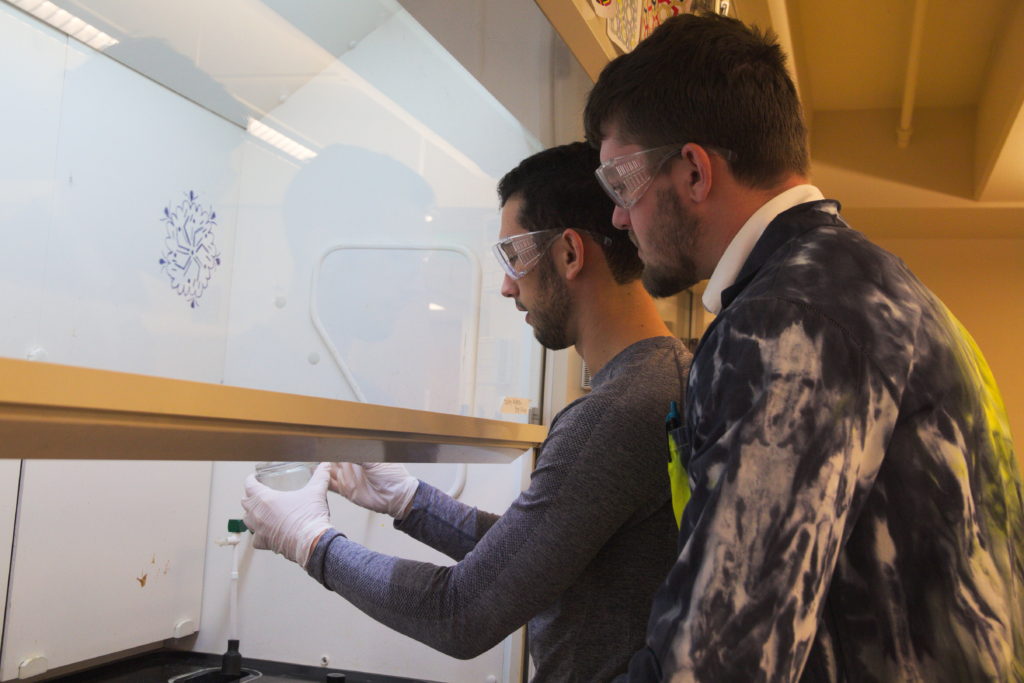
Whether by accidental or deliberate oversight, Hillsdale College is failing its students and faculty by refusing to implement both an Institutional Review Board (IRB) and an Institutional Animal Care and Use Committee (IACUC).
This oversight does not just keep research taking place in Dow, Strosacker, and Kendall from publication in scientific journals. By not taking adequate steps to emphasize the role and place of science in a rigorous, authentic liberal arts education, the College fails to live up to its mission statement, which claims “to furnish all persons who wish, irrespective of nation, color, or sex, a literary and scientific education.”
As Madeleine Jepsen reported in the March 30th edition of the Collegian, the College’s refusal to implement neither an IRB nor an IACUC continues to cause the scientific community at large to overlook the considerable scientific achievements of Hillsdale College faculty and students. As an institution that showcases the opportunity to perform research in front of prospective students and faculty, the refusal to provide access to research materials, and at minimum an IRB, is both hypocritical and untenable.
Both the faculty’s and students’ lack of College-provided access to, much less ability to publish in, essential primary literature materials such as the journals Nature and Science further underscores the lack of these basic review boards. The College discourages scholarship and injures itself by inhibiting its academicians from performing their work within the appropriate ethical guidelines.
Not choosing to implement an IRB and IACUC because compliance is federally regulated indicates a woefully sparse understanding of the ethics involved. The IRB and IACUC policies that have been codified in the laws of the United States arose directly from horrific and gruesome human subjects research performed in the 20th century. If Hillsdale wishes to communicate that it does not find the guidelines rising from the ashes of the Tuskegee Syphilis Experiment, the Willowbrook Study, and the Nuremburg Trials significant and reputable, then so be it. If, however, Hillsdale is truly committed to preserving the ethics of Western civilization that are part of “modern man’s intellectual and spiritual inheritance,” Hillsdale must take action to implement both an IRB and IACUC.
Were any of these reasons insufficient to merit concern, it is also in the College’s best legal self-interest to implement these boards forthwith. Human subjects research is performed at Hillsdale College, and Hillsdale’s faculty are obligated to take sufficient and appropriate steps to protect the identities and data collected from their research participants. Personally-identifying or medically-relevant information that may be collected from research participants must be protected appropriately—failure to do so puts the College at legal risk and could endanger participants if disclosed inappropriately. Comparable liberal arts and Christian institutions such as Calvin College, Hope College, Aquinas College, Belmont University, and Saint Mary-of-the-Woods College all recognize the importance of these issues and maintain active IRBs (and IACUCs if their faculty perform animal research).
The lack of these resources at Hillsdale typifies a widening rift between the sciences and the humanities. This rift continues to grow at an alarming rate in conservative institutions, where Christian fundamentalism collides with liberal education. By nature, a Hillsdale liberal arts education ought to encourage, rather than stifle, complete intellectual diversity. Requiring all students to take full-fledged coursework in the humanities while crafting an attenuated science curriculum for non-majors is equally unacceptable.
Scientists on the whole are notorious for their poor communication skills, as demonstrated by the increasing demand for quality science writers. Likewise, the general public lacks understanding of fundamental issues tested and developed via the scientific method such as vaccination, public health initiatives, and statistics. A truly rich liberal-arts education, which Hillsdale claims to provide, encourages the integration of all educational disciplines and does not pick and choose which aspects to include. There is no reason that science, a Western Heritage, and a Judeo-Christian faith cannot live together in perfect harmony. In fact, when combined, they guarantee a student the richest educational experience possible.
William H. Bragg, a recipient of the Nobel Prize in Physics, echoed this sentiment in a Christmas 1919 lecture for the Royal Institution.
“From religion comes a man’s purpose; from science, his power to achieve it. Sometimes people ask if religion and science are not opposed to one another,” he said. “They are: in the sense that the thumb and fingers of my hands are opposed to one another. It is an opposition by means of which anything can be grasped.”
Hillsdale must reconcile the values espoused in its mission statement with its current stances on research ethics and the role of science in the liberal arts. In this regard, the College would do well to take counsel from Dr. Bragg.
Mr. McDonnell ’15 is a PhD candidate in microbiology and immunology at Vanderbilt University School of Medicine and Mr. Drogowski ’15 is an MD candidate at Oakland University William Beaumont School of Medicine.

